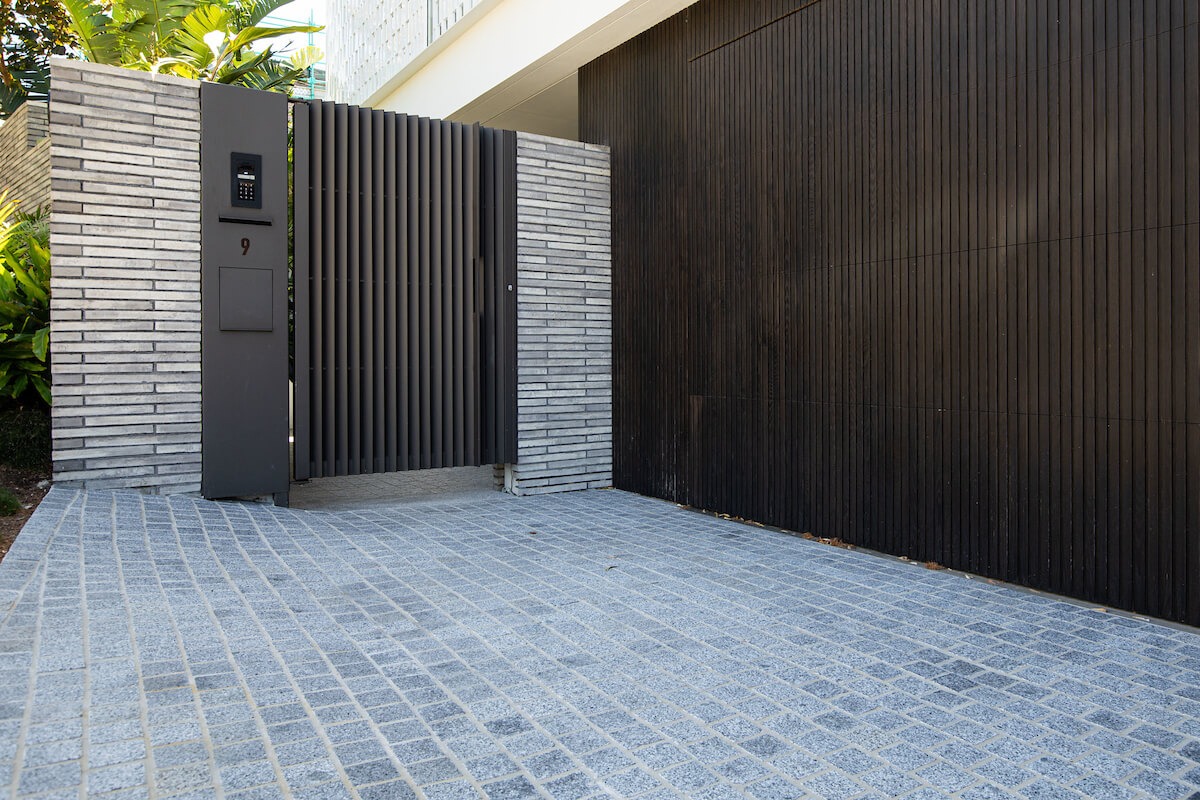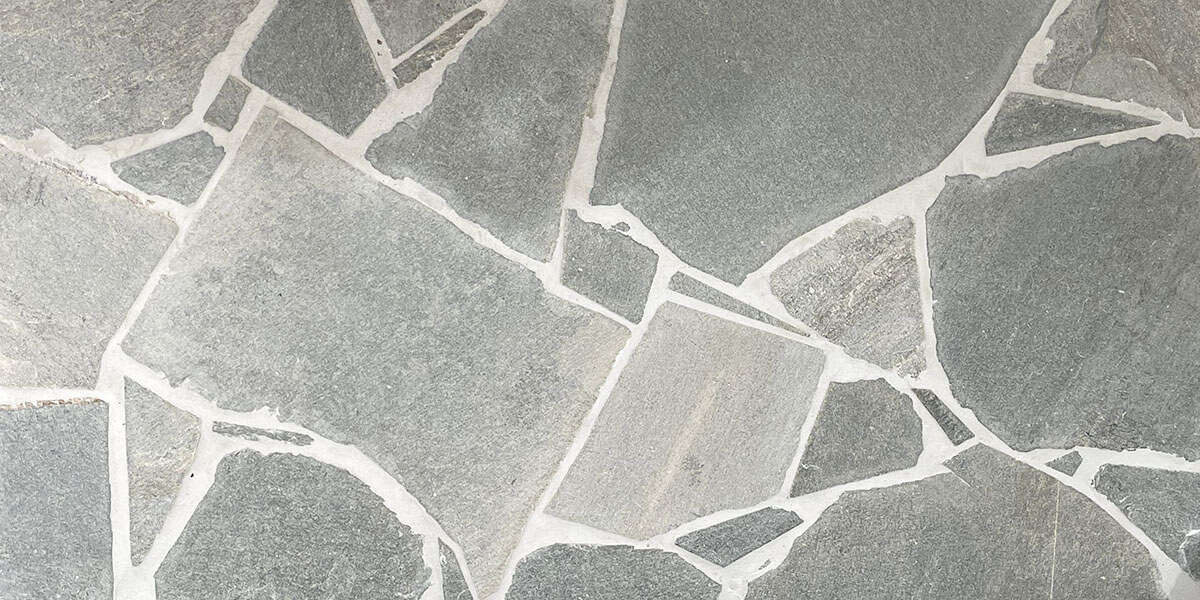How to Transform Your Yard With a Multi-Level Garden
Just like not all homes are the same, garden’s aren’t either.
Some are built on flat surfaces and others are build on inclines.
While flat surfaces are always easier to work with, you can still use your garden as a canvas to create an exquisite multi-level garden that WOWs guests and neighbours alike.
Multi-level gardens make an impact in any house or property but are particularly helpful if you’re working with a hilly yard or if your property is sitting on a slope. Though multi-level gardens can be applied to just about any property, no matter its size, they’re a great way of creating a ‘layered garden oasis’ to make small areas look wider.
So if you’re looking for a way to utilise your garden’s existing space and features to create a huge visual impact, building a multi-level garden may just be the way to go.
The steps behind building a multi-level garden
When working on a garden, many people might view an uneven area as a challenge or drawback. However, a hilly space can become a dramatic backdrop for your home and yard.
So if you’re looking at your hilly garden with the intention of transforming it, here are a few simple steps you can incorporate when building your multi-level garden oasis:
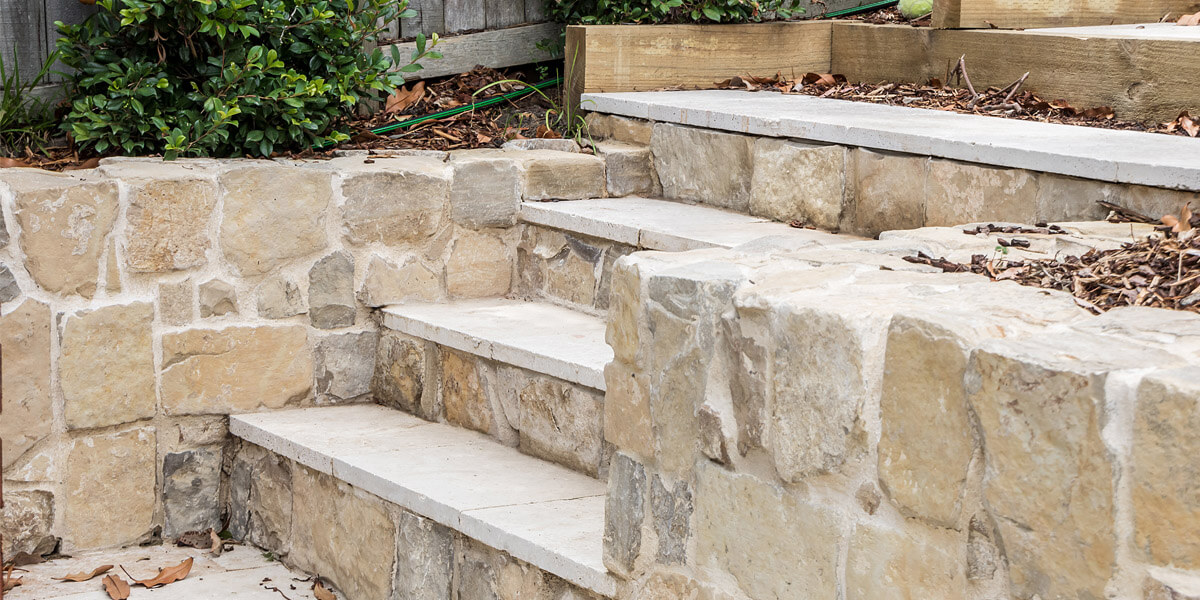
1. Hire a professional landscape architect
While anyone with a piece of paper and an imagination can dream up their multi-level garden design, when it’s time to finalise the design we strongly recommend hiring a professional to help. A landscape architect or designer can help handle the complex features of a multi-level garden such as the retaining walls, terraces, steps, drainage, and decks and plan a layout that will be both structurally and visually sound. If you would like a referral, contact us at 1300 560 560. We work with a few landscaping companies and would be happy to refer someone to you based on your budget and style.
2. Build retaining walls
The first step in building your multi-level garden is creating a clean canvas. This involves digging up the old plants and trees to create a space where you can create the ‘levels’. Remember to hold onto the plants and trees to replant them later. Once you’ve cleared the space, you can start digging the land to create the footings for your retaining walls. Retaining walls are necessary for multi-level gardens because they decrease your garden’s gradient making it easier to access and plant.
You can build retaining walls with natural stone, concrete blocks, railroad ties, and a variety of other materials. Creating multiple levels in your garden creates space and openness which is exceptionally helpful for utilising whatever available space you have in small courtyards. Retaining walls are typically made by excavating a portion of the slope and then using this soil as backfill behind the wall to create a more even surface.
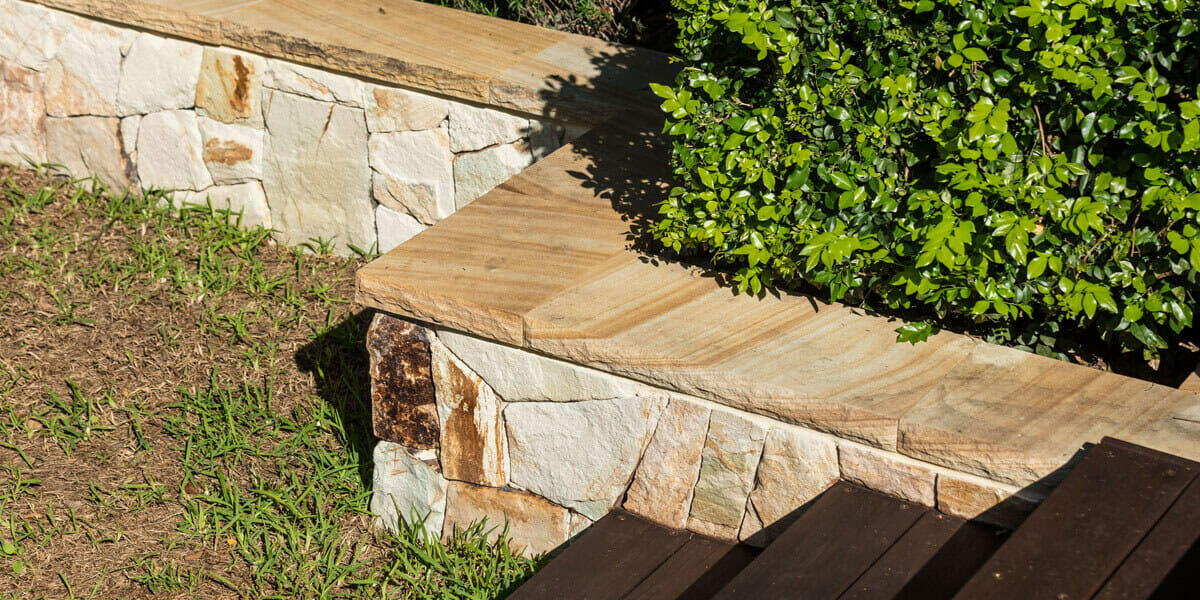
3. Break up the landscape with steps and vertical features
If you want to create a high-impact space, consider blending your retaining walls with vertical gardens. You can create this ‘sunken garden feel’ by planting smaller plants and shrubs at the front of each level and building up their size and density towards the back. While plants are an excellent way to make use of the landscape, you can also incorporate steps and pavers to seamlessly elevate you from one level to the next.
Ideas for a multi-level garden design
1. Create different spaces
The beauty of designing a multi-level garden is that you can create different spaces or sanctuaries at each new level. For example, one level can be completely devoted to socialising and entertainment purposes complete with a dining setting and fire pit. As you travel up along the garden path, add a water feature, lush plants, and a comfy chair where you can enjoy those quiet moments of escape with a book or a cup of tea. Multi-level gardens are truly unique and give you a wide array of creative license. So if you fancy your garden to have different spaces for different purposes, this is a perfect way to make it a reality.
2. Incorporate timber decking
Timber decking has a way of making any space look polished and complete while simultaneously creating zones and protecting the vegetation. You can also double up your decking as seating and use it to make steps, planters, or as an elevated deck for a hot tub. You only limited by your imagination and if you’re unsure of where to find ideas and inspiration, try searching on Google, Pinterest and Instagram.
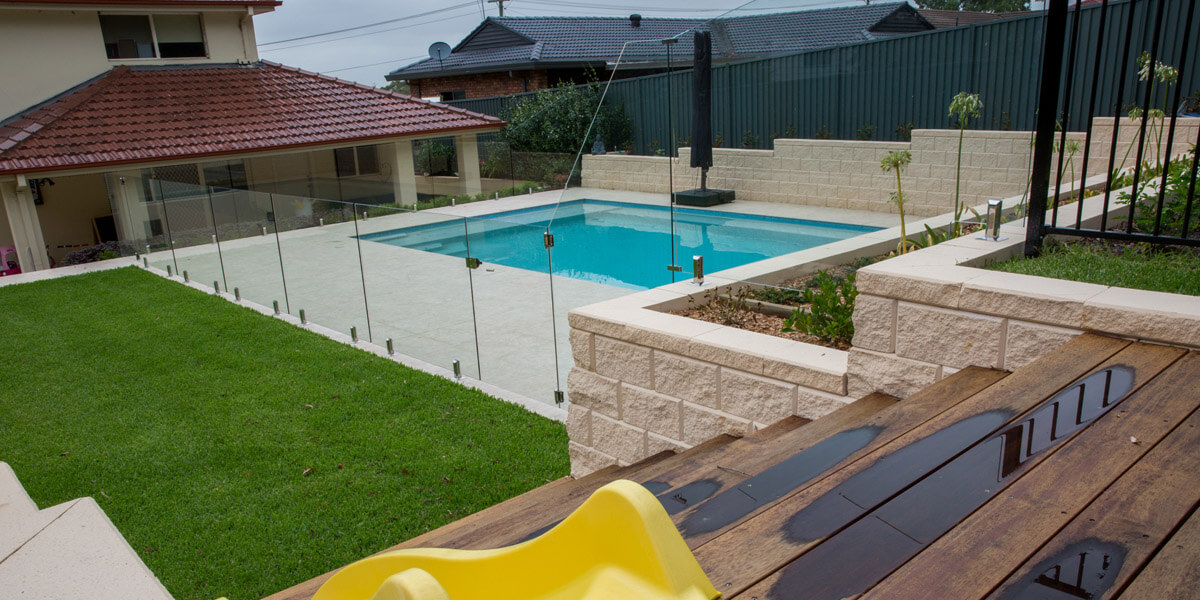
** Jura Beige Porcelain Pavers
3. Use water features
Water features easily and effectively add ambience to any garden. For multi-level gardens, we recommend installing a tiered fountain as a focal point because its height will blend well with the upper levels of your garden and allow your eyes to be drawn to a main feature. In case you want to add visual interest in the lower half of your garden, a pond complete with water plants will create a relaxed and quiet use of the space.
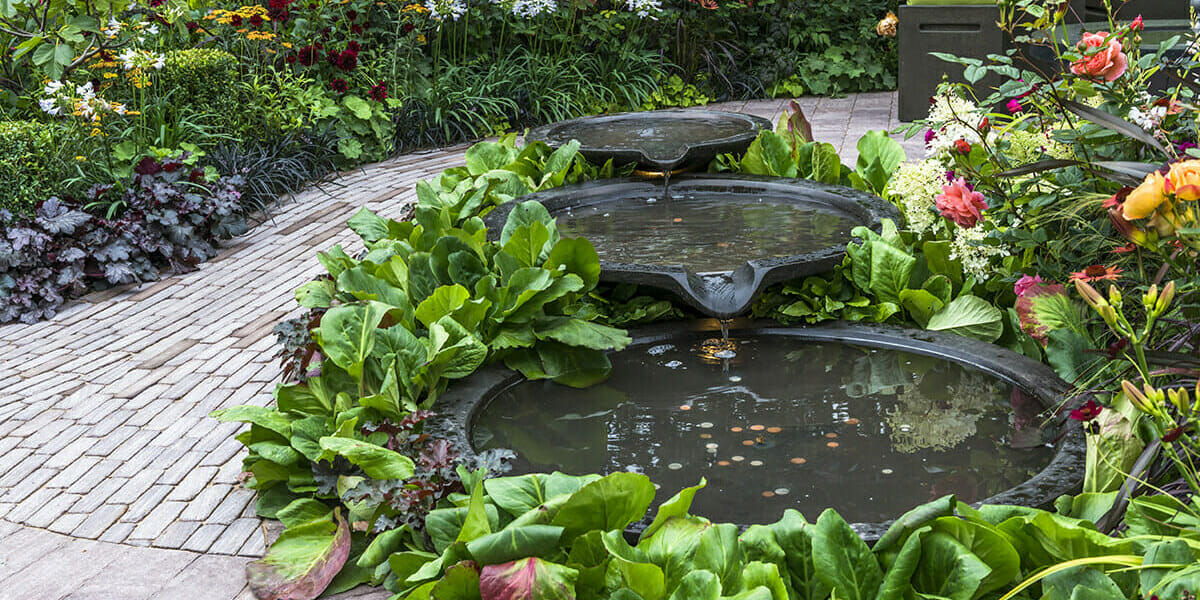
4. Build a raised planter garden
Fancy some fresh herbs and vegetables for your salad or cocktail? Why not utilise your tiered garden and create a raised planter garden! This functional use of your space will would work great with your barbecue and outdoor eating area.
5. Use rocks and stones as edging
Instead of creating clean edges and lines to outline your garden space, consider using rocks and decorative garden pebbles. They create a natural look and give the effect that the garden was crafted out of the earth itself. If you want to add extra ambience at night, line your pebbled path with outdoor fairy or solar lights – it will make your multi-level garden look absolutely magical. And if you want to get really creative, use decorative pebbles on your retaining walls to create a striking feature wall.

The benefits of a multi-level garden
A multi-level garden creates drama and interest to an otherwise flat and uninteresting landscape. On the other hand, if you have a smaller, and sloping, yard, then a multi-level garden gives the illusion of space, simply because you’re segmenting and organising the areas better. One thing that you can be sure of is that whether you’re adding the multi-level garden to a large or small space, it will undoubtedly create a striking effect in your yard. But that’s not the only benefit. Others include:
- Creating visual interest – A multi-level garden is a visually impressive setting from the ground-up. You see, using plants of varying heights and adding green walls / vertical hanging gardens, you can create spaces that resemble a private garden oasis.
- Prevents soil erosion – Terracing your garden is an excellent and effective way to retain excess water and allows you to use water efficiently. You can also use your sloped landscape as a natural drainage system.
- The possibilities are endless – The variety of ways you can design and plant a multi-level garden far exceeds what you can achieve with a flat space. Different levels allow for different zones and give you far more creative license. As such, multi-level gardens are truly a gardeners and landscape designers dream!
Create a visual outdoor space
Creating a multi-level design garden will transform your flat outdoor space or help to take a tricky hilly landscape and turn it into a visually dramatic masterpiece.
If you’re set on this project idea and need any materials or assistance, feel free to reach our team of stone experts at Armstone online or at 1300 560 560. We have an extensive range of natural stone paving solutions and garden pebbles and would love to help you plan your very own multi-level garden or outdoor space.
